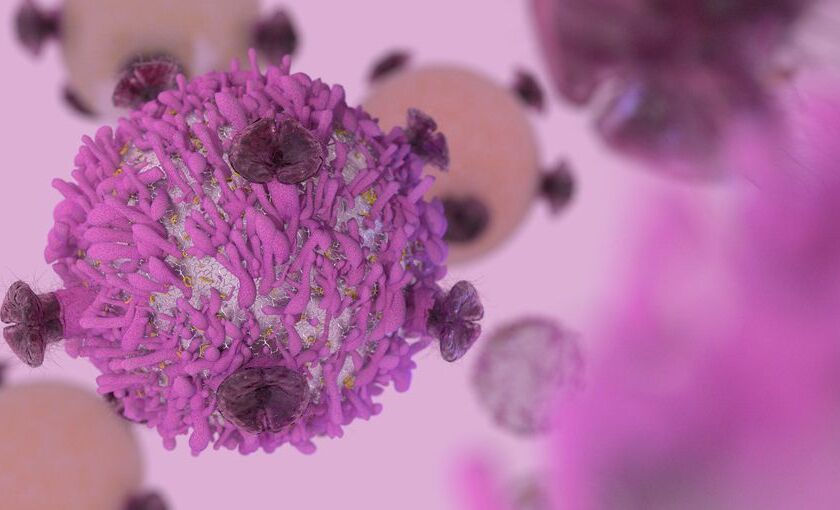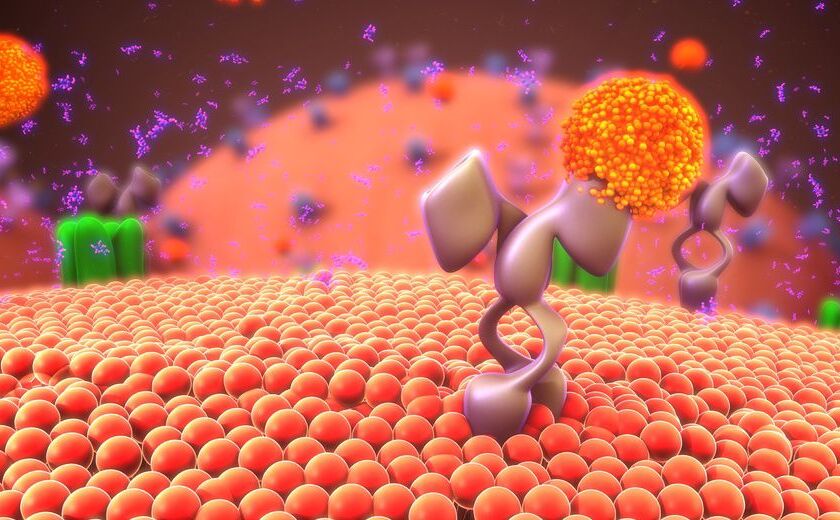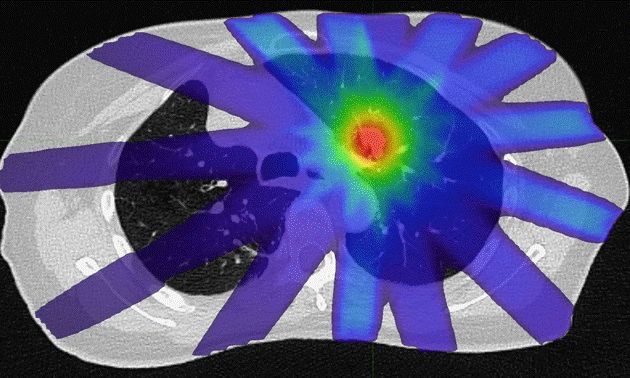Research studies show that the immune system can influence the development and progression of cancer. Strengthening the immune system is therefore a promising therapeutic approach to fight cancer. Physicians and scientists of the CCCZ Research Area Tumor Immunology investigate the interaction between the tumor and immune system. The overall aim is to develop novel and targeted immunotherapies with minimal side effects.
Cancer Research Areas & Groups
CCCZ integrates and supports all cancer research activities of the UZH, USZ, Balgrist University Hospital and the University Children's Hospital Zurich. Scientists and physicians from around 65 research groups and clinical departments work closely together to improve the understanding of cancer and develop innovative treatment concepts.
Dedicated research areas have been established for Tumor Immunology, (Epi)Genetics & Genomics, Oncogenic Signaling and Imaging, Technology Development, and Digitalization.
CCCZ Research Groups A-Z
- Isabelle Arnold, Prof. Dr., Mucosal Immunology
- Matthias Altmeyer, Prof. Dr., Genome instability in cancer and aging
- Konrad Basler, Prof. Dr., WNT and hedgehog signalling in colorectal cancer
- Martin Baumgartner, Prof. Dr., Pediatric molecular neuro-oncology research
- Burkhard Becher, Prof. Dr., Inflammation Research
- Felix Beuschlein, Prof. Dr. med.,Department of Endocrinology, Diabetology and Clinical Nutrition
- Nikola Biller-Andorno, Prof. Dr. med. Dr. phil., Biller-Andorno Group
- Bernd Bodenmiller, Prof. Dr., Quantitative Biology
- Beat Bornhauser, Prof. Dr., Cell death and leukemia
- Lubor Borsig, Prof. Dr., Borsig Group
- Jean-Pierre Bourquin, Prof. Dr. med., Pediatric Onoclogy
- Onur Boyman, Prof. Dr. med., Boyman Group
- Maries van den Broek, Prof. Dr., Tumor Immunology
- Amedeo Caflisch, Prof. Dr., Caflisch Group
- Richard Chahwan, Prof. Dr., Cancer Immunobiology Lab
- Jacob Corn, Prof. Dr., Corn Lab
- Raghvendra Dubey, Prof. Dr., Dubey Group
- Reinhard Dummer, Prof. Dr. med., Skin Cancer Clinical Research
- Daniel Eberli, Prof. Dr. Dr. med.
- Thomas Frauenfelder, Prof. Dr. med., Radiology Research Group
- Urs Greber, Prof. Dr., Greber Group
- Melanie Greter, Prof. Dr., Research Group
- Matthias Guckenberger, Prof. Dr. med., Radiomics Research Group
- Ana Guerreiro Stücklin, MD PhD, Translational Brain Tumor Research
- Alex Hajnal, Prof. Dr., Hajnal Lab
- Jason Holland, Prof. Dr., Radiochemistry and imaging science
- Michael Hottiger, Prof. Dr., Cell signalling in inflammatory associated diseases
- Pavel Janscak, Prof. Dr., Mechanism of DNA repair
- Michael Krauthammer, Prof. Dr., Clinical Data Science and Translational Bioinformatics Group
- Kuno Lehmann, Prof. Dr. med., Abdominal Surgical Oncology Group
- Mitch Levesque, Prof. Dr., Translational Dermato-Oncology
- Massimo Lopes, Prof. Dr.,Replication stress in cancer onset and therapy
- Chiara F Magnani, Prof. Dr., Cancer Immunotherapy and Cell Engineering
- Markus Manz, Prof. Dr. med., Experimental Hematology
- Giancarlo Marra, Prof. Dr., Colorectal tumorigenesis
- Bjoern Menze, Prof. Dr. med., Department of Quantitative Biomedicine
- Holger Moch, Prof. Dr. med., Urogenital cancer translational research
- Anne Müller, Prof. Dr.,Immunobiology of bacterial infection and cancer
- Christian Münz, Prof. Dr., Viral Immunobiology
- Hanspeter Nägeli, Prof. Dr., DNA repair, histone modifiers, chromatin remodelers
- Cesar Nombela-Arrieta, Prof. Dr., Microenvironmental Regulation of Hematopoiesis
- Chantal Pauli, Prof. Dr. med., Pauli Group
- Lorenza Penengo, Prof. Dr., Ubiquitin – Based Regulation of Genome Stability
- Andreas Plückthun, Prof. Dr., Protein engineering
- Martin Pruschy, Prof. Dr., Laboratory for applied radiobiology
- Gunnar Rätsch, Prof. Dr., Biomedical Informatics Group
- Luca Regli, Prof. Dr. med., Neurosurgery
- Gerhard Rogler, Prof. Dr. med, Gastroenterology and Hepatology
- Patrick Roth, Prof. Dr., Immunocure
- Raffaella Santoro, Prof. Dr., Santoro Group
- Alessandro Sartori, Prof. Dr., DNA Damage and Repair
- Beat Schäfer, Prof. Dr., Pediatric Onoclogy
- Michael Scharl, Prof. Dr. med., Translational Microbiome Research Center
- Roger Schibli, Prof. Dr., Radiopharmaceutical Sciences
- Isabelle Schmitt-Opitz, Prof. Dr. med., Department of Thoracic Surgery
- Gerald Schwank, Prof. Dr., Translational Genome Editing
- Berend Snijder, Prof. Dr., Snijder Lab
- Lukas Sommer, Prof. Dr., Stem Cell Biology
- Christian Stockmann, Prof. Dr., Immunity, Angiogenesis and Tissue Remodeling
- Manuel Stucki, Prof. Dr., Genome Instability and Cancer
- Didier Surdez, Prof. Dr. Bone Sarcoma Research Laboratory
- Sonia Tugues,Prof. Dr. , Experimental Immunology
- Achim Weber, Prof. Dr. med., Weber Lab
- Michael Weller, Prof. Dr. med., Neurology
- Sabine Werner, Prof. Dr., Tissue repair and cancer
- Andreas Wicki, Prof. Dr. med., Oncogenic Signaling
- Lynn Wong, Prof. Dr., Cell Death and regulation of Inflammation
- Thorsten Zenz, Prof. Dr. med., Lymphoma Research
CCCZ Cancer Research Areas & Groups
Tumor Immunology

Epigenetics, Genetics and Genomics
Many of the characteristics of cancer cells, such as malignant growth and the ability to metastasize, are influenced by genetic changes. Research groups of the CCCZ Research Area Epigenetics, Genetics and Genomics study gene and genome alterations in cancer cells aiming to develop novel treatment concepts that selectively target cancer cells.

Oncogenic Signaling
Signal transduction pathways within and between cells are often deregulated in cancer and contribute to uncontrolled growth and metastasis. In the CCCZ Research Area Oncogenic Signaling, scientists and physician investigate the effect of cancer drugs at the molecular level. Another focus is to overcome drug resistance of cancer cells.

Imaging, Technology Development and Digitization
The CCCZ Research Area Imaging, Technology Development and Digitization pursues the goal of developing personalized diagnosis and treatment methods against cancer. Novel imaging techniques, such as innovative MRI sequences, PET imaging and radiomics, enable precise characterization of tumors. High-throughput molecular technologies, like sequencing, proteomics, metabolomics and imaging, are essential for molecular diagnostics and monitoring of disease progression. For the analysis of scientific and clinical data, the development of modern bioinformatics and information technologies are of central importance.
